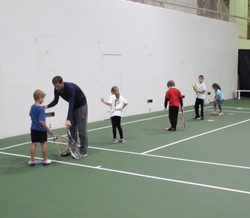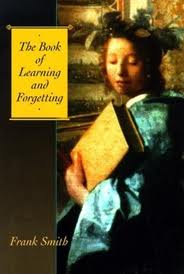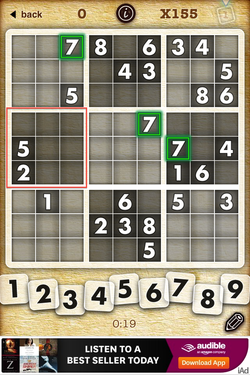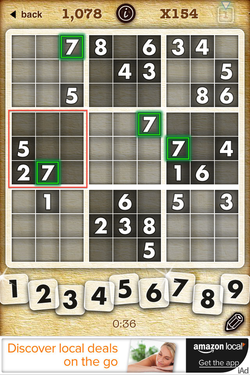 With pretty high hopes yesterday I gathered my video gear and headed off to a tennis lesson for one of my grandkids. "Here's my chance," I thought "to get some great video of a CoP in action." I did shoot some video but after an hour or so of waiting for some "action" I recognized that what I was seeing really wasn't a community of practice. What I was seeing could more be described as a traditional classroom, albeit with tennis racquets. The teacher would gather the students and give them a task. They would then move apart and madly bounce the tennis balls on the floor, or up in the air, or at a target. There was one teacher and seven or eight students. There was almost no interaction between the students and they barely uttered a word or even looked at what their peers were doing. So, my hopes dashed, I returned home and resumed my search for a true CoP. It was pretty cute and funny watching these seven-year-olds running around chasing tennis balls. . . . and I did discover what wasn't really a community of practice.
Well, I jumped in and whipped out a video for the community of practice assignment. . . . I'm glad I did it so early because it gives me time to complete a second one. Let me explain. My first CoP video is really about a community within which I have been an observer (lurker) for quite some time. It's an online CoP, or group of CoPs that I go to when I have an Excel problem I can't solve. I believe this fits the definition of a CoP but I'm not really happy with it because I don't really think it fits the spirit of the assignment. I'm going to look for other options and create a second video. Stay tuned!
 And yet another book that is opening my eyes. Frank Smith's The Book of Learning and Forgetting is providing me with a great deal of interesting knowledge. For example, I was surprised to learn that by the age of six, most young children have a vocabulary of around 10,000 words. I knew a six year old could talk but what Smith pointed out, and what I hadn't thought of before was that most of these words were acquired without formal instruction! Smith also relates the story of a third grade teacher who did a study on her students vocabulary growth. She found that, in one year, students add an average of 27 new words to their vocabulary every day, 365 days a year!
While I've not finished the book yet, Smith is pointing out how much learning occurs intrinsically and without organized education. My personal learning theory calls this vicarious absorption and I believe that we never lose that ability. According to the summary of the book, Smith will build on this premise and use it to build a case that states that our current education system actually inhibits vicarious absorption.
Not sure I agree that these are mutually exclusive. I know I learned a lot in the manner in which Smith states, but I also learned through traditional methods. For example, I am often surprised today when someone CAN'T multiply six by nine in their heads. Memorizing the multiplication tables was something I had to do a punishment in grades five and six. . . . and it's stuck with me for over 45 years.
Well. . . not really, but Sudoku has really sharpened my pattern recognition skills. See how by watching the video below.
I have been working on my very own learning theory for a couple of weeks now. Reading about Dewey, Erikson, Piaget, even Skinner and Pavlov (yikes). I think naturally, I am drawing upon my own experiences not only as a learner but also as a teacher and administrator. I've been formulating in my head, and on paper (not paper really - on my computer) my own theories of why and how people learn. I'm starting to recognize that the 'why' is just as important - stepping out on a limb - perhaps more important than the 'how.' The how and the why are different, I know that, but they are intertwined and can not be separated - nor should they. How individuals learn means very little without the motivation to learn (the 'why'). My learning theory is very much based on the why. I think that, if the motivation is strong enough, learning occurs regardless of how the information is presented. Perhaps I am taking a little Pavlov, some Erikson, definitely some Maslow and Piaget and mixing it all together in my head to see what comes out.
I have been playing my potty game Sudoku for about five weeks now. I find it a wonderful waste of time. . . well not really a waste I suppose as you'll see from the video I am working on. It's teaching me a few things. I actually LIKE working with numbers better than I did before. Here's the thing though. When I was playing "just for fun" I found I really enjoyed it and got no small amount of satisfaction from beating the game. However, for this project I decided to make the video mentioned earlier. I was trying to shoot scenes that demonstrated how I was learning the game. . . . and I noticed myself becoming frustrated . . . even agitated because I had a "deadline" with a specific accomplishment desired. Not as much fun anymore. I was surprised that a different motivation could make the game LESS enjoyable!
Here's the thing. I've never been much one for sports. Even growing up I shied away from all kinds of physical sports.. . . even cards and board games were not my thing. Perhaps I am anti-competitive. . . I don't know. Though I do love doing something at work that makes me or my team look good or improve operations. . . Isn't that competitive?
Finally. . . FINALLY I got some pleasure from a video game. . . YES. . . ME!!! The other night I, and my cadre mates had some good hard fun playing League of Legends. Now. . . I have tried for the past two nights and no one will play with me! *whine* It's kind of lonely . .. really. To find something that I enjoy. . . something I never thought I would, and now I can't play. I would never think of getting into the "public" area to play, even labeled as a neophyte I know (or I fear) that others would be better than I and laugh. I prefer to play amongst the safety of my known, friendly, forgiving, and nurturing cadre mates rather than that whole outside and dangerous world.
So, what am I learning? I think that games can be great learning tools. . . BUT. . . is it possible that they might alienate a certain proportion of the population?
Hour 1: I am stunned by how bad I am at this game. OK. . . admittedly I have . . . maybe 45 minutes in. . .but right now I am not feeling too much of what McGonigal calls "fiero!" I recognize the amount of time that it takes to become even a novice at this game. . . but can it hold my attention that long? I will keep trying.
Hour 2: It's starting. . . the hard fun is starting! I took the time to complete the tutorial before the second class so at least I wasn't stumbling around like a blind fool. I have some of the controls worked out and that is pretty gratifying. . . Still some things that mystify me . . . but at least the frustration level is lessening. I am really starting to see a little bit of the attraction. Cadre 16 has a "date:" to play more tomorrow and we'll see how I do.
I'm not a math person. Never have been. I remember all through school feeling intimidated in classes because I didn't understand it. A lot of it just didn't make sense in elementary- and high-school. Lately though I have been playing an electronic version of Sudoku. I have played this game before but always in a non-e format. You know the games in the back of the Southwest and other airline magazines? Even then, the numbers gave me some grief. I would never have a pencil so I ended up using a pen. . . with much scribbling out of errors and so forth (apologies to all those who flew after I did and tried to play the game.)
Then I found the potty game Sudoku. First, no pens are involved. Second, the game makes me feel "OK" with numbers for maybe the first time. . . The e-version of Sudoku is cleverly designed with little hints and guides to help newcomers quickly solve the easier levels of the game.
I am sure all of you know how to play Sudoku but just in case. . . no number may exist more than once in each quadrant ("ninth-rant?") or in each line vertically or horizontally. Easy to explain. . . more difficult to play.
 Have a look at the screenshot to the left. In the middle block of nine on the left column (the block with the red rectangle around it) where does the 7 belong? . . Without the little green square "hints" it might be difficult to find . . . but with the hints it's a whole different story - an. The second image shows, with the constraints above, the only possible place to put the 7.
 In this image it's easy to see why the 7 must be placed where I have it. Now for the rest of the empty squares. .. .
The above is just one of the methods that this version of Sudoku provides to make the game less threatening to non-mathies. There are other hints, tools and levels to not only make the play non-threatening but also to allow one to gradually work up to more difficult levels.
OK. . . so here's the thing. This is NOT a math game, right? No, it isn't. But my early experience with math made working with numbers in any form a trial to be avoided at any cost. The thing about this game is that it made me feel like I COULD work with numbers and be successful. I never really enjoyed the paper Sudoku but I do enjoy, and am getting better at, the e-version . . . . and I find I am playing it at every "potty opportunity"
 So, here I go with Portal. After asking the 18YO (nicely) to use the x-Box and making the him PROMISE not to instruct, give hints, cajole, or help in any way, I was off and running (well. . . . stumbling really) with Portal. He kept to his word and didn't assist me at all. . . . but I did have to put up with him laughing uproariously and ridiculing me at some of my early feeble attempts at the more challenging sections. Lots of emotions . . . . I was Intimidated, felt like he was being condescending, and lots of other negative stuff. Sure I laughed it off. Had to.
Honestly, never having been a gamer I was really amazed at the graphics and level of detail (I know, I know. . .newbie right?). At first I stumbled around in the corner of the room for a minute or two until I worked out the controls. I really didn't find the hand controls intuitive at all. I finally got through the door of my "resting chamber" (success!) and started wandering the hallways. At first I found the computer voice kind of annoying and tried to block her out (unsuccessfully) to concentrate on the play. Pretty soon however, I recognized that amidst the "HAL-esque" (remember Kubrick’s 2001?) interruptions and sometimes bizarre attempts at humor there was occasionally a tidbit of useful information about how to succeed. Lesson 1: Listen to the voice . . . but filter! Something else that I ignored for a while were those odd "international" style signs on the walls (like the one accompanying this post). I remember one of them had a piece of cake with the universal "no" symbol through it. What? No eating cake? I thought they were just more attempts at humor and window dressing by the designers. Not so. Well. . . not entirely so. . . . Occasionally, amidst the decorative clutter I would find a symbol that would give me a hint on how to solve the current puzzle and escape from the room I was in. I remember one of these challenges where the voice and the signs combined gave me the hint I needed. The sign was similar to the one above and the voice said something to the effect of "speedy thing goes in. . . speedy thing comes out." This was my clue to get some momentum before passing into the portal. Lesson 2: Keep your eyes and ears open. . . but filter!
So. . . my takeaways for Portal so far. Fun? Yeah. . . Hard fun? Heck yeah! Once I stopped stumbling around and used the clues and queues to make some progress that is. I enjoyed solving the challenges. . . and having some successes. Made me think.
A negative? The pretty much constant ridicule by the resident 18YO. Made me wonder a little about the gamification of traditional learning. Younger children are sometimes wont to make themselves feel superior by bullying, laughing at, or otherwise ridiculing their peers who are not as "good" as they are. I wonder if, in a non-gamified, more traditional educational setting, there would be less of a chance of this happening than in a gamified environment, simply because of the level of competition with would creep in. . .
|
